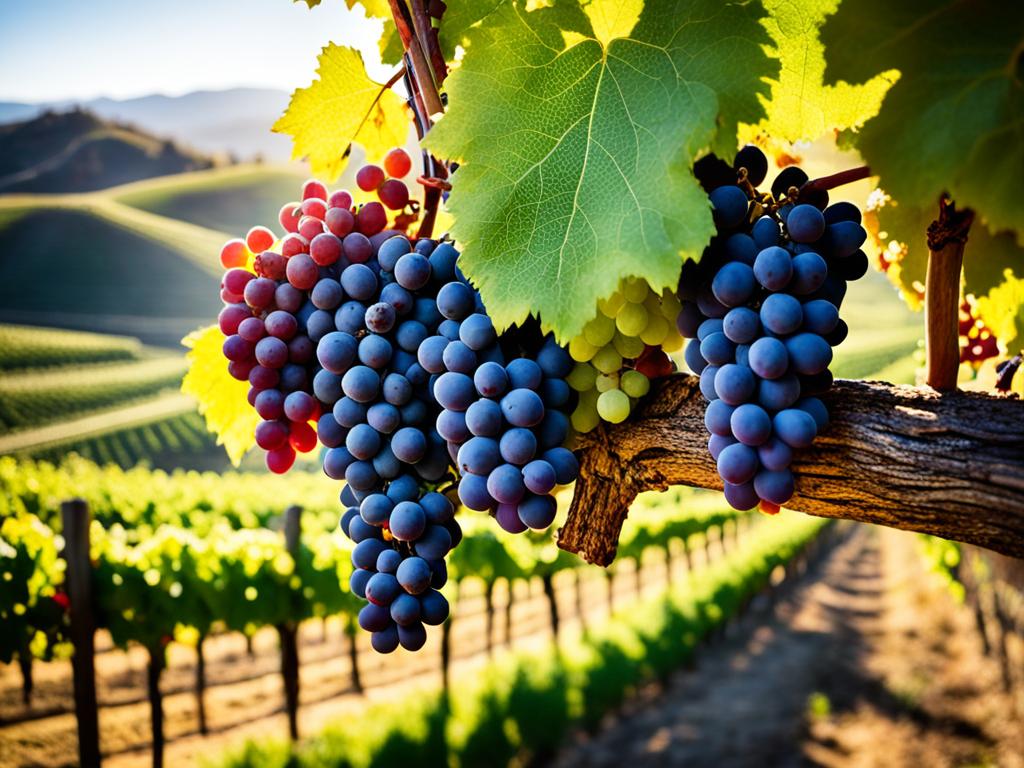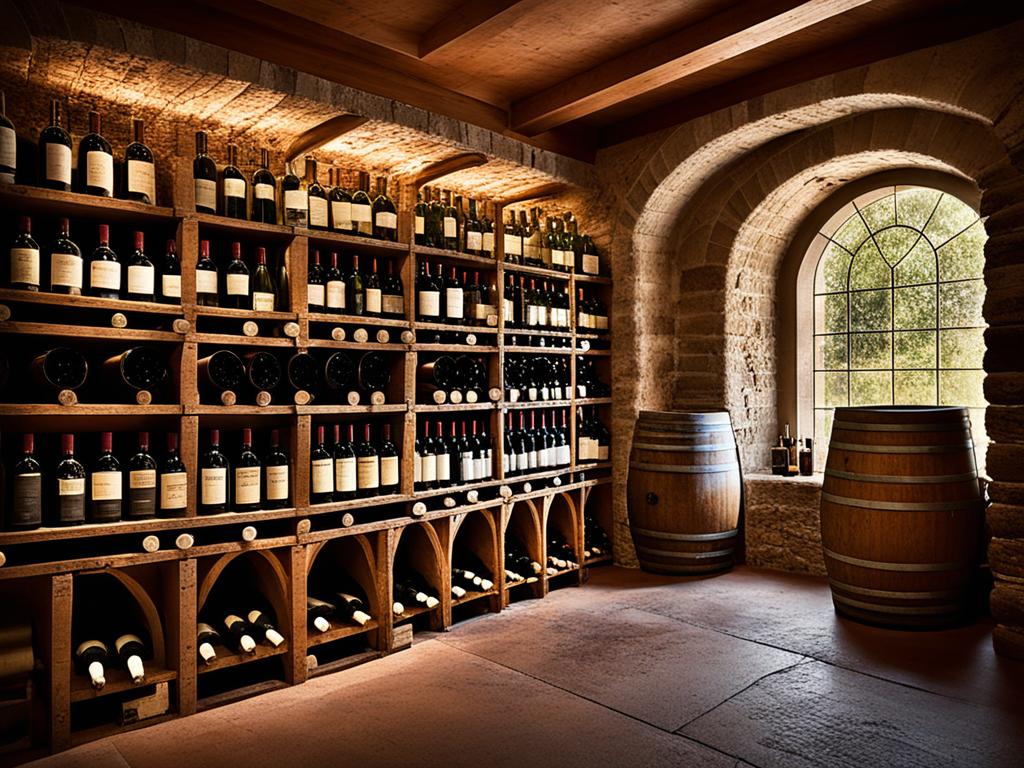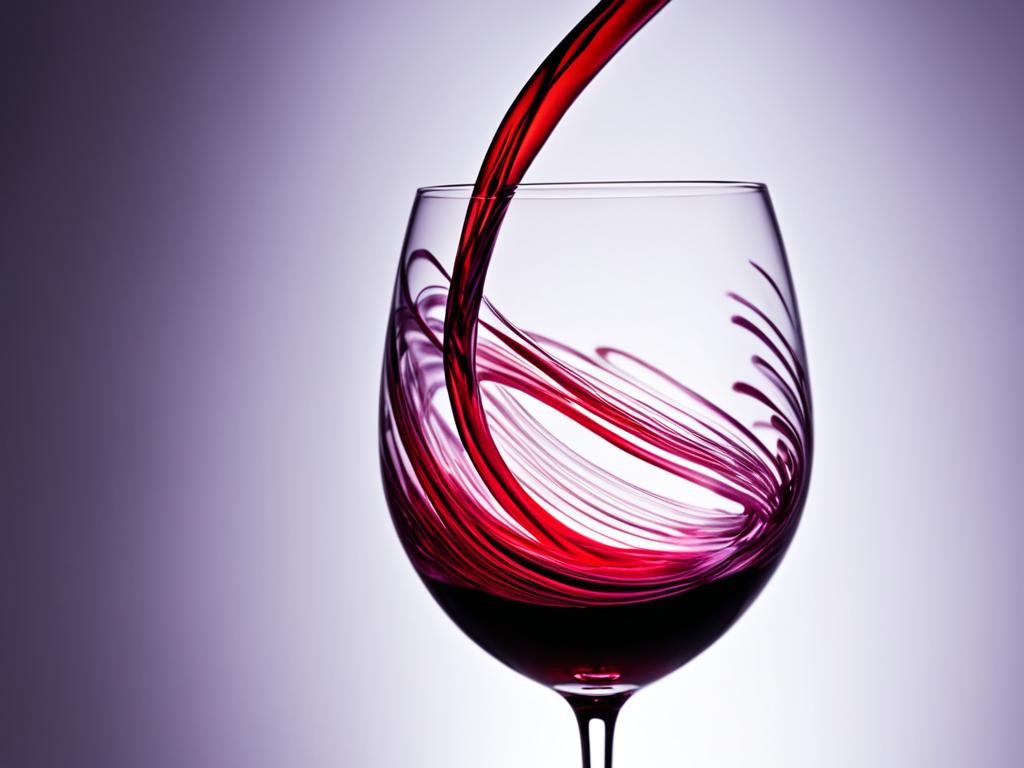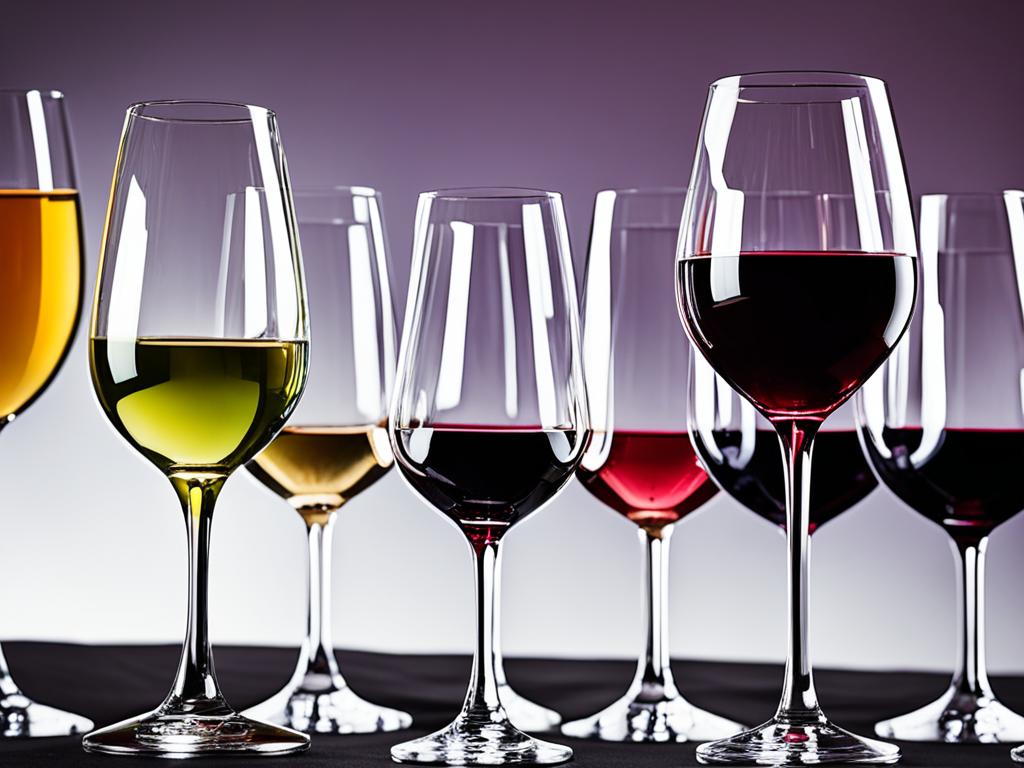Welcome to the intriguing wine tasting world. Have you thought about what sets each wine apart? What makes a light chardonnay different from a bold cabernet sauvignon? And what surprises do smooth merlots hold? Let’s dive into the exciting field of wine tasting. It’s a journey where we’ll get to taste various wines and find their distinctive flavors.
This is a trip for both seasoned wine lovers and newbies. It will awaken your senses to terroir, varietals, and the craft of making wine.
Picture yourself with a glass of wine. Its color shines in the light. The smell is so inviting. Then, that first sip is a burst of different tastes. This experience teaches you that every wine has a unique story to tell.
Come with us to learn more about wine tasting. We will talk about what makes each wine interesting and special. We will cover aspects like the science of making wine and how the type of grape and the soil affect the taste.
Are you excited to discover the secrets of wine tasting? Let’s start this delicious journey together. We will explore the rich world of wines.
The Art of Wine Tasting
Wine tasting is more than sipping; it’s an art that takes you on a journey. It involves your senses, your taste for flavors, and an admiration for wine’s detailed process. This experience lets you get up close and personal with the vast world of wines.
Starting a wine tasting adventure means discovering the hidden stories in every glass. With each taste, you peek into the craftsmanship and love that goes into making wines. You’ll find yourself in awe of the skill and dedication of each winemaker.
Understanding your own palate is vital in the world of wine. It acts as your personal compass, guiding you through different wine flavors and textures. With some practice, your taste will become finely tuned to pick out even the subtlest wine notes.
The aroma of wine is like a sneak preview before the first sip. Swirling your glass releases the scent, which can be as simple as fruit or as complex as earthy tones. Let the aroma enchant you; it hints at the hidden tastes waiting to be discovered.
Behind every bottle, there’s a science known as oenology. This field focuses on the making of wine and the magic that happens during the process. Understanding oenology brings a new layer of appreciation for what makes each wine unique.
Next time you join a wine tasting, appreciate the craftsmanship in your glass. Use your senses to dive into the array of flavors. Let the journey through the world of wine begin. Cheers to wine tasting, an art like no other!
Exploring Varietals and Terroir
In the world of wine, “varietals” and “terroir” are key. They help us understand different flavors and qualities. Each wine type brings its own special tastes, making wine exciting for fans.
The term varietals means the grape types used in making wine. Whether it’s bold Cabernet Sauvignon or soft Chardonnay, each offers something unique. By knowing these, your wine tasting adventure becomes richer.
Let’s explore some famous varietals:
| Grape Varietal | Characteristics |
|---|---|
| Cabernet Sauvignon | Full-bodied, with dark fruit flavors, notes of cedar and tobacco |
| Chardonnay | Rich and buttery, with flavors of tropical fruits, vanilla, and oak |
| Sauvignon Blanc | Refreshing and crisp, with vibrant citrus and herbaceous notes |
Knowing about various grape types can really lift your wine tasting game. Trying different varietals can help you find wines you love.
Now, let’s talk about “terroir.” It involves how the environment affects wine flavors. It includes:
- Soil composition: Various soils add different flavors and minerality to grapes.
- Climate: Temperature, humidity, and rain matter a lot. They affect how grapes mature and the wine’s final taste.
- Vineyard location: Things like height and distance from water change how grapes grow. This affects the wine’s flavor.
Terroir and varietals mix to create wine’s unique taste and character. Winemakers pay close attention to these details. They want their wines to reflect their vineyard’s special environment.
Here’s a quote from winemaker Michael Mondavi to highlight terroir’s importance:
“Terroir is what makes wine regions unique and cherished. It’s about capturing a place’s essence. The unique flavors and traits only come from its terroir.”

Learning about varietals and terroir can make you value wine even more. With every glass, think about the special grape and terroir mix. They make each sip memorable.
The Role of Vintage and Aging
The age of a wine is key to its taste and complexity. Vintage tells us the year the grapes were picked. Weather, soil, and how it’s made all shape a wine’s taste.
Aging in wine makes flavors better over time. This happens after the wine is bottled. It can age in a cellar or in the bottle. The time it takes to age varies.
“The aging process can elevate the quality of a wine, bringing out intricate flavors and textures that may not be present in younger wines,” says renowned winemaker, Jane Smith. “It allows the wine to integrate the various components, such as tannins and acids, creating a harmonious balance.”
Red wines become better with age, softening their tannins. This makes them smoother with more interesting tastes. They get extra notes, like earthy flavors, making them more enjoyable.
White wines are often enjoyed when they’re young. They’re known for being fresh and smelling like fruit. But, aged white wines with more acid can get better with time. This adds to their flavor complexity.

Deciding to age wine comes down to personal choice and what you like. Some love the energy in new wines. Others find aged wines rich and deep. Trying different ages helps wine fans find their favorite style.
Unraveling the Bouquet and Tannins
The scent of wine, known as its bouquet, makes the taste richer. As you taste wine, you’ll enjoy many lovely smells. You might find fruity smells, like flowers, or spicy scents. Each one makes the wine unique and exciting to try.
When you smell wine, you might notice ripe berries, gentle flowers, or exotic spices. These come from the grapes, how they’re made, and how they’re aged. All these steps add to the aroma you enjoy.
Understanding tannins is important too. They come from grape skins and affect how wine feels in your mouth. They can make your mouth feel dry but also give the wine a nice texture.
As you taste different wines, notice how the smells and the tannins work together. Some smells might mean the wine feels a certain way in your mouth. This mix is key to really enjoying how wine tastes.
By learning about the smells and tannins, you’ll love wine even more. Follow your senses on a journey of aroma and feel. This will make your wine adventures more interesting.

The Bouquet and Tannins Chart
| Bouquet | Tannins | |
|---|---|---|
| Wine A | Fruity | Moderate |
| Wine B | Floral | Low |
| Wine C | Earthy | High |
| Wine D | Spicy | Subtle |
The Role of a Sommelier
A sommelier is an expert in wine who helps you pick the best wine for your meal. They make your wine tasting better by sharing their knowledge and suggesting wines to try.
Sommeliers love wine and spend years learning about it. They know a lot about where wine comes from, the different types of grapes, and how it’s made. This helps them create amazing wine lists and recommend the best wines for you.
At a fancy restaurant or a wine event, a sommelier is there to suggest the perfect wine. They know a lot about the tastes of different wines and which ones go well with different foods. This improves your dining experience.
Sommeliers are good at tasting wine. They can tell you about the smells, tastes, and how the wine feels in your mouth. They help you understand a wine’s unique qualities, where it’s from, and how long it can be aged.
Benefits of Consulting a Sommelier
When you talk to a sommelier, you learn a lot about wine. They recommend new wines based on what you like, making every glass enjoyable.
Sommeliers also make learning about wine fun and easy. They’re great at explaining, so you don’t feel overwhelmed. They share their excitement for wine in a way that makes you want to learn more.
| Benefits of Consulting a Sommelier | |
|---|---|
| Access to extensive wine knowledge and expertise | |
| Personalized wine recommendations based on taste preferences | |
| Enhanced dining experiences through wine pairing | |
| Insights into wine characteristics, origin, and aging potential | |
| Making wine more approachable and enjoyable |
The main job of a sommelier is to improve how you drink and choose wine. They offer advice, knowledge, and suggest the best wines for you. Whether you know a lot about wine or you’re just getting started, a sommelier can make your wine journey really exciting.
Enhancing Your Wine Tasting Experience
Ready to elevate your wine tasting skills? Discover new tips and techniques. This will make your wine tasting experience richer and grow your flavor knowledge.
1. Sample Different Wines
Tasting a variety of wines is key. Try various types like Chardonnay, Pinot Noir, or Cab Sauv. This helps you understand different flavors. You’ll also see how the place where the grapes grow affects the taste.
2. Pay Attention to Flavors
Taste and note down the flavors you find. You might notice fruity tastes or earthy notes. This skill allows you to enjoy wine more. You’ll see the depth in every glass.
3. Use the Right Glassware
The right glass matters a lot. Pick a smaller wine glass for white wines. This keeps their fresh smells. For red wines, go for a big, wide glass. It lets the wine breathe so you can enjoy all its flavors. Buy good wine glasses. They make a big difference.
4. Master the Art of Food Pairing
Pairing wine with food is a game changer. For example, pair light white wines with seafood. Dark red wines go well with meat. Find your favorite pairing by trying different combos.
“Wine and cheese are ageless companions, like aspirin and aches, or June and moon, or good people and noble ventures.” – M. F. K. Fisher
5. Take Your Time
Don’t rush through tasting wine. Enjoy every sip. Notice how the wine changes in your mouth. This is how you start on the path to knowing wine deeply.
6. Attend Wine Tasting Events
Take part in wine events or visit wineries. This will help you meet others who love wine. You can try new wines and learn from the experts. It’s all about enjoying and learning together.
By applying these ideas, you will notice your wine tasting improves. You’ll gain insights into various wines and how to match them with food. So, get your glass and start exploring the world of wine!
Conclusion
Wine tasting is a fascinating journey into the world of wine. You get to try various wines, getting to know their unique tastes. This helps you understand the complexity of wine making and what goes into every bottle.
Grab a glass and start your wine tasting adventure today. Cheers!




